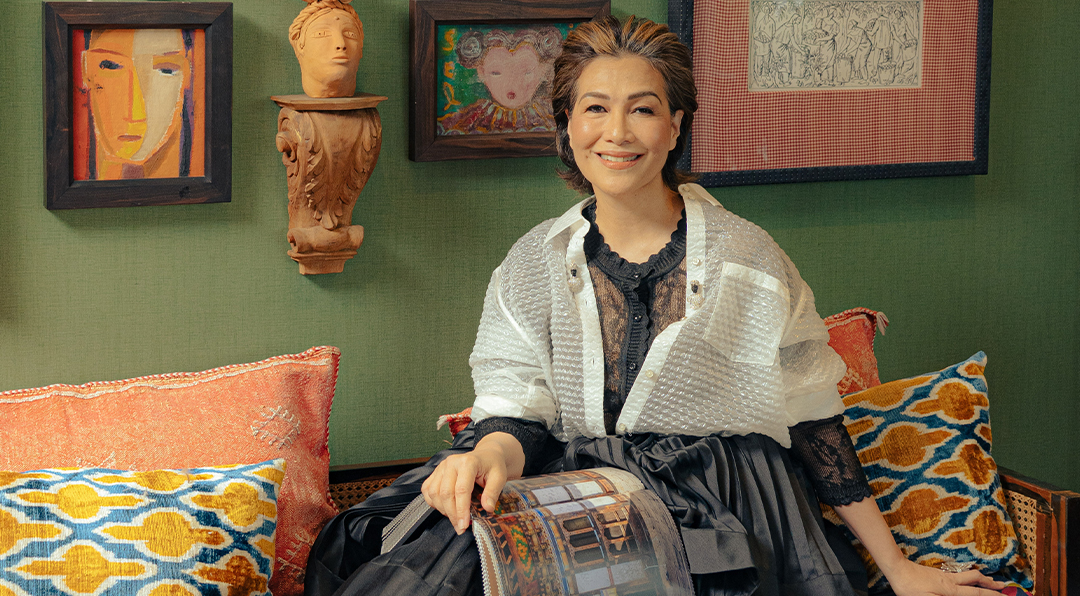It took an outsider to address the big fat elephant in the room, in a manner of speaking.
Last week’s Parenting article, where visiting popular finance expert Suze Orman gave insights into the Filipino culture, spurred a debate among online readers. Obviously the American’s commentary hit a raw nerve. It was a case of things-we-already-knew-but-wouldn’t-talk-about, because they were just too uncomfortable to address.
Orman, who has had Filipinos working for her back home in the US for many years, noted the Filipinos’ tendency to rely solely on a single member of the family for their livelihood—the overseas worker, who sends his/her entire paycheck, like clockwork, every month.
(https://lifestyle.inquirer.net/36975/parents-should-never-tell-a-child-they-hate-having-to-leave-home-because-they-have-to-work)
Orman also gave advice on how to teach children about financial responsibility, and advised parents to save for their own retirement so they don’t end up depending on their children in their old age—a point that didn’t sit well with some readers.
Some resorted to ad hominem attacks.
“What do you expect from a person who comes from a country who leaves their parents after 18, dumps their elders in the aged care center, just like saying bahala na kayo diyan,” writes reader Roel. “They do not even visit their parents once a week but they take care of their dogs or cats every day. They even prefer to walk with their dogs every day instead of their parents. What a shame!”
“I have to agree with her but if you are a caring child and you love your parents, then you should take care of them and don’t dump them in a nursing home,” concurs reader Ann. “Be proud of our culture!”
To which Anonymous points out: “She never said that Filipinos abandon their parents. She only mentioned that the parents should have money saved for themselves. What’s wrong with that? I think we should take in the good points and do away with negatives… Seminars like these (Orman was in town to give a talk for BPI bank clients) are not meant to highlight the defects in American culture. It is meant to correct our concepts on money.”
“Everything Suze says is just common sense,” writes Rene V. “but common sense is not what I see in OFW families left behind. Almost nothing is left for savings and most family members here treat the OFW as a source of unending cash and there lies the tragedy of families dependent on one or two to support them… Suze just echoes the old saying of our ancestors—‘Mag-ipon tayo!’”
“Feel(ling) kasi eh ’pag abroad ka eh super yaman ka na,” says reader J. “It reminds me of a guy who was paying for the school tuition of her two nieces on her wife’s side of the family. When he finally got a mortgage on his house, he told his brother-in-law that he could not do it anymore. The stupid Filipino brother-in-law got angry and even created havoc in his house breaking some appliance!”
Anonymous adds, “Her idea to charge rent (to adult children living with parents) is good… I especially like the idea that whatever the parents collect in rent will be returned in the future as seed money when the child moves out to live on his/her own.”
Some commenters blame the culture of mendicancy on the government and society. Writes Anonymous: “Dapat ng tigilan ng ating gobyerno ang pagbibigay ng pera sa mga mahihirap ng walang kapalit na gawain. Tinuturuan lang nila maging tamad ang mga Pilipino… Kahit man lang maglinis sa kanilang barangay tuwing umaga imbes na magsugal at mag-tsismisan.” (The government should stop giving dole-outs. It’s just encouraging the Filipino to be lazy. For instance, people should clean up their neighborhood in the morning instead of wasting time on gossip or gambling.)
Anonymous writes: “I was able to send money to my parents in the province… I was able to lend money to my siblings and friends. Until I noticed that I was financially abused. My friends and siblings never paid me back. It was routine for them to borrow money from me and never pay. I couldn’t save no matter how hard I worked. So, I decided to stop. Then I was able to save.
“Four years ago, I started my first business in Metro Manila, from my savings. I was 27. It wasn’t easy though. But now, I have more than 30 employees. Last year, I started three more businesses in the Philippines and another one abroad…
“I’m glad that I decided not to be helpful anymore. In this way, I can help more people by employing them.” CVM













































